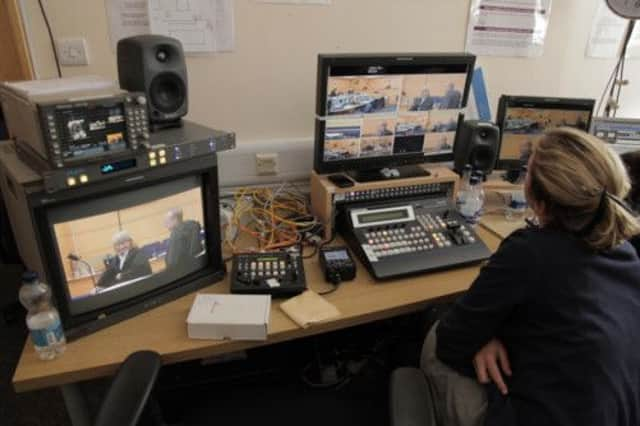Top UK lawyer calls for cameras in court


John Cooper QC said that the move would help the understanding of proceedings and deliver better transparency.
He was speaking to the audience at the Edinburgh International Television Festival during a debate with television executives chaired by ITN news presenter Alastair Stewart.
Advertisement
Hide AdAdvertisement
Hide AdIt followed the recent broadcasting of The Murder Trial on Channel 4, which followed the prosecution of Nat Fraser for the murder of his wife Arlene in 1998.
Mr Cooper said: “Justice should not only be done, justice should be seen to be done. If the public can see what is going on in their courts they will have greater confidence about what is being done in their name.
“Research suggests that when the public are informed of the detail of what goes on in court, rather than soundbites or a few inches in newspapers, they understand and respect the decisions taken in their name.
“These courts are already open to the public, why shouldn’t the wider public be given access by means of television.”
John Battle, head of compliance at producer of ITV News and Channel 4 News, was also on the panel and echoed his comments, describing the lack of cameras in court as “shameful”.
“It’s not a dangerous or radical step that’s being taken, we’re very much behind what other countries are doing. I think it’s shameful how long it’s taken to get cameras into our legal system”, he told the audience.
“Credit needs to be given to the Scottish system because they are way ahead of England and Wales. What we have to rest with is court sketches. The idea that in 2013 people are getting their information on what’s going through court through a crayon sketch is ridiculous.”
David McKenna, chief executive of Victim Support Scotland, was also on the panel and backed the suggestion and said that broadcasting events would help to prepare witnesses and improve understanding of the court system.
Advertisement
Hide AdAdvertisement
Hide AdHowever, he told the audience that judges would have to have control over the system, and that vulnerable witnesses would have to be protected.
Permission to film trials is rare but television crews were also allowed to film the sentencing in April 2012 of David Gilroy for the murder of Suzanne Pilley in Edinburgh.
In October 2012, the new Lord President, Lord Gill, announced a suspension of all filming in Scottish courts pending a review, with The Murder Trial earlier this year the sole exception.
He had determined that the “current policy requires revisiting and given extended consideration”.
There are three or four requests to film court cases in Scotland each year, however, filming in English courts has been banned since 1925.